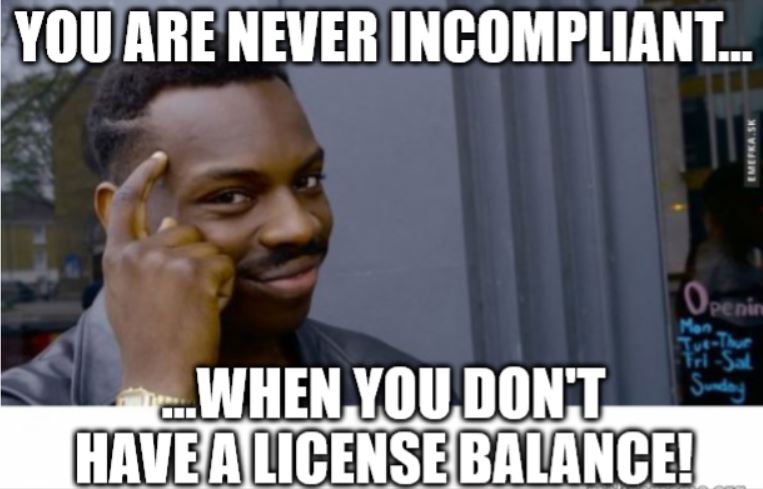
License management for specialist software – a necessary extension?
The focus of classic license management is usually limited to a few software vendors. Special applications offer high potentials, but are often disregarded.
The classic scope of license management
The scope of license management is often very limited. The variety of software vendors that are the focus of license management tends to decrease as the size of the company increases. The few remaining products are usually software that is used by all employees of the company or is required on a wide scale in the background. This typically includes applications for a standard office workstation (office and communications software), software for providing the IT infrastructure, or other cross-departmental administration software.
License management includes all areas of a company
Software license management encompasses all processes that ensure the legal and efficient handling of all software used in a company. License management affects all areas of a company, from procurement to each PC workstation, to management.
Rule number one – Identify legal risks and potential savings
In the technical literature "1x1 Des Lizenzmanagements" (T.Groll, Hanser), Thorsten Groll mentions ten important rules of license management. Rule number one, "Work out legal risks and potential savings", gives no clues as to the scope of software vendors to be considered. Similarly, rules two through ten or other contents of the book provide few clues to help define scope. Of course, the well-known vendors are used for illustration, and it is little surprise that it is Microsoft, IBM, and Oracle (and a few others) that are repeatedly mentioned. But these aren't the only ones with legal risks and potential savings.
Defining the Scope
One of the central questions of license management, however, deals with setting the scope. What is "in scope" and what is "out of scope"? Since there is no sample solution, an initial assessment can be made based on the following aspects:
- Audit risk
- Number of installations or number of required licenses
- Amount of annual expenses
A qualified evaluation taking these criteria into account may be sufficient to narrow down the scope. In technically well-equipped companies (e.g., with SAM tools), one is able to identify possible savings potentials, sometimes also risks, relatively quickly. Regardless of the industry, there are usually several thousand software products in use. All the more striking is the almost identical scope in many companies.

Specialist software is mostly out of scope
Exotics are not part of the license management community. Are the products of these vendors irrelevant? Do they pose no audit risk, or can they be neglected due to their low cost?
Software vendors like Dassault Systèmes also have compliance & piracy departments. A violation of the terms of use can lead to demands for re-licensing in the six-digit euro range for products from this vendors, even for one affected device. Although such specialist software is usually not used by all staff, a small number of installations may not be sufficient to exclude products from the scope.
Especially in technology- and development-oriented companies, the expenditures for engineering software are higher than those of the well-known vendors of office and infrastructure software. The responsibility for managing this specialist software is delegated to the functional departments, or more precisely, it remains there. Those responsible for license management often do not dare to do this. It seems far too complex or is not part of the project mandate. In addition, the departments, most of which add value, don't want to do it. They have no time for months of negotiations; the pressure of day-to-day business is far too high. Availability has priority one.
License management can also be important for specialist software
But what if license management could help the value-adding departments to reduce software costs? Wouldn't that be in the interest of the functional departments?
Savings of 15-30% are also possible here – and sometimes even more. Why should it be any different from the products we talk about almost exclusively in the license management community? For me it is clear: license managers can significantly contribute to increasing compliance and efficiency in the use of specialist software.
What about you? Is specialist software part of the scope of license management for you as well?
Author: Volker Albrich